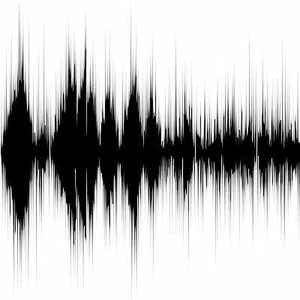Difference between revisions of "CSC231 Lab 6 2010"
(→Assemble) |
|||
| Line 1: | Line 1: | ||
--[[User:Thiebaut|D. Thiebaut]] 13:51, 25 October 2010 (UTC) | --[[User:Thiebaut|D. Thiebaut]] 13:51, 25 October 2010 (UTC) | ||
---- | ---- | ||
| + | {| | ||
| + | | | ||
__TOC__ | __TOC__ | ||
| + | | | ||
| + | [[Image:SoundWave.jpg]] | ||
| + | |} | ||
| + | |||
<br /> | <br /> | ||
<tanbox> | <tanbox> | ||
Revision as of 09:02, 25 October 2010
--D. Thiebaut 13:51, 25 October 2010 (UTC)
This lab covers sound files in the WAV format, and performing various operations on a sound file using array operations.
The Format of Sound Files
- The document https://ccrma.stanford.edu/courses/422/projects/WaveFormat/ covers the WAV format pretty well, and can be a source of additional information
Part 1
Get the code
- Get a copy of the required files
- or simply get them with getcopy
getcopy readWaveFileSkel.asm getcopy wav.inc
Get sound files
- Get the sample wav files hello.wav and goodbye.wav as well:
getcopy hello.wav getcopy goodbye.wav
- (there's more at http://buggerluggs.tripod.com/ie/wav-dir184.htm )
Play the sound
- Play the files with aplay to make sure you can hear them:
aplay goodbye.wav Playing WAVE 'goodbye.wav' : Unsigned 8 bit, Rate 8000 Hz, Mono
- Important: make a note of the size of the samples, in this case 8 bits, unsigned.
Assemble, Link and Run
- Do not modify readWavFileSkel.asm yet. On its own it will create a new copy of the goodbye.wav under the name goodbye2.wav.
- Assemble and link the file
nasm -f elf readWavFileSkel.asm ld -o readWavFileSkel readWavFileSkel.o rm goodbye2.wav ./readWavFileSkel
- Check that you now have a new file in your directory called goodbye2.wav
- Play it.
aplay goodbye2.wav
- (Note: on a mac, you can use afplay from the command line instead of aplay.)
- You should hear the same thing as you did when listening to the goodbye.wav file.
Part 2
Test #1: Increase intensity
- Make a copy of readWavFileSkel.asm and call it readWavFile1.asm
- Modify it so that you multiply the intensity of the sound by 2.
- Listen to the result. Can you still understand the message?
- Copy goodbye2.wav into goodbye.wav and repeat the process. Still understandable?
Test #2: Decrease Intensity
- Same thing, but this time you will divide the intensity by 2. A good way to divide by two is to shift the binary pattern to the right. For example, to shift right the contents of eax by one bit, do this:
shr eax, 1
Test #3: Twice the Sound
- Double up the size of the wav file, making it repeat the sound "goodbye" twice, so that you will hear "goodbye, goodbye".
